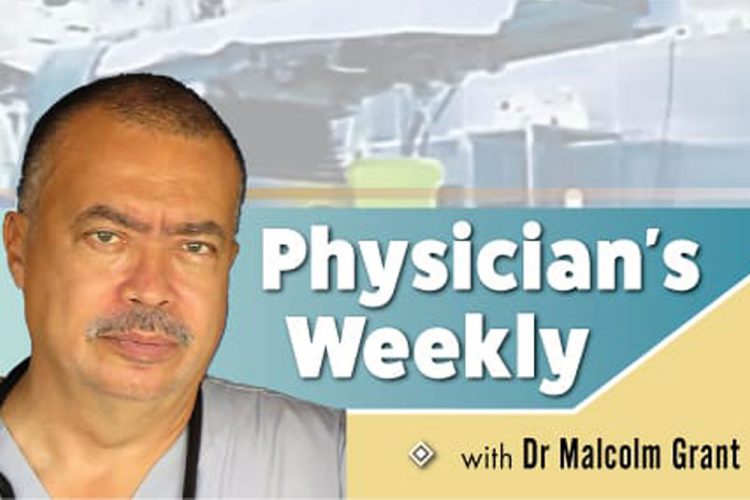Unexplained weight loss reviewed

Q: I’m 78 years old and I have suddenly lost 20 pounds in four months. Should I be concerned?
A: Where there is a sudden and unintentional loss of weight the cause should be identified and managed accordingly. If an elderly person unintentionally loses five per cent or more of their weight in six months or less, it could be a sign of a serious underlying issue that needs to be urgently addressed. For example, if a person who normally weighs 180 pounds suddenly falls to 171 pounds in six months or less, without making the effort, this needs to be looked into.
Consequences of sudden weight loss in the elderly:
n Chronic fatigue, tiredness and weakness. The person is prone to falls and injuries, including fractures.
n Difficulty performing everyday chores and tasks – e.g.: bathing, dressing, grooming, cooking, cleaning.
n A weakened immune system and increased risk of (severe) infections.
n Increased social isolation which can further worsen depression, independence and impair memory (cognition)
n Overall, a significant reduction in quality of life.
What are some of the more common reasons for weight loss?
1. Social isolation: One of the most common reasons leading to weight loss in the elderly is social isolation. This is most likely in those living alone. Loneliness often leads to depression and reduced activity. Which in turn leads to reduced appetite and a loss of muscle mass, ultimately leading to a loss of weight.
2. Underlying medical condition: There are several underlying and often undiagnosed medical conditions which can cause one to lose weight. For example, diabetes, cancer, heart disease, an overactive thyroid, neurological and gastrointestinal conditions.
3. Medications: Certain prescription and non-prescription medicines can trigger weight loss. They generally do so by suppressing the appetite by way of dry mouth, reduced senses of taste and smell, and in some cases nausea. This is more likely to occur when one is on several different medicines at the same time.
4. Mental illness: Untreated or inadequately treated depression, anxiety, dementia (Alzheimer’s), bipolar disease and alcohol abuse may result in weight loss.
5. Cessation of activities of daily living (ADLs): For example, if an elderly person must cease driving. This often starts a cascade of events which can result in weight loss.
6. The aging process: With the loss of muscle, bone mass and organ atrophy/ shrinkage (e.g. liver and kidney) as one ages, one’s weight may naturally decline.
7. Poor oral health: This can result in the unsatisfactory mastication of food, so the person reduces their intake of food.
Finally; because the cause of unexplained weight loss can run the gamut, from nothing to worry about to life threatening causes, it is highly recommended that anyone experiencing such should visit their doctor for further assessment and treatment, where necessary.
In up to 28% of instances, no cause of weight loss can be identified. However, some basic tests that should be done are a complete blood count, basic metabolic panel, liver function tests, thyroid function tests, C-reactive protein levels, erythrocyte sedimentation rate, glucose levels, lactate dehydrogenase levels, and urinalysis.
l Author: Dr. C. Malcolm Grant – Family Physician, c/o Family Care Clinic, Arnos Vale, www.familycaresvg.com, clinic@familycaresvg.com, 1(784)570-9300 (Office), 1(784)455-0376 (WhatsApp)
Disclaimer: The information provided in the above article is for educational purposes only and does not substitute for professional medical advice. Please consult a medical professional or healthcare provider if you are seeking medical advice, diagnoses, or treatment. Dr. C. Malcolm Grant, Family Care Clinic or The Searchlight Newspaper or their associates, respectively, are not liable for risks or issues associated with using or acting upon the information provided above.









